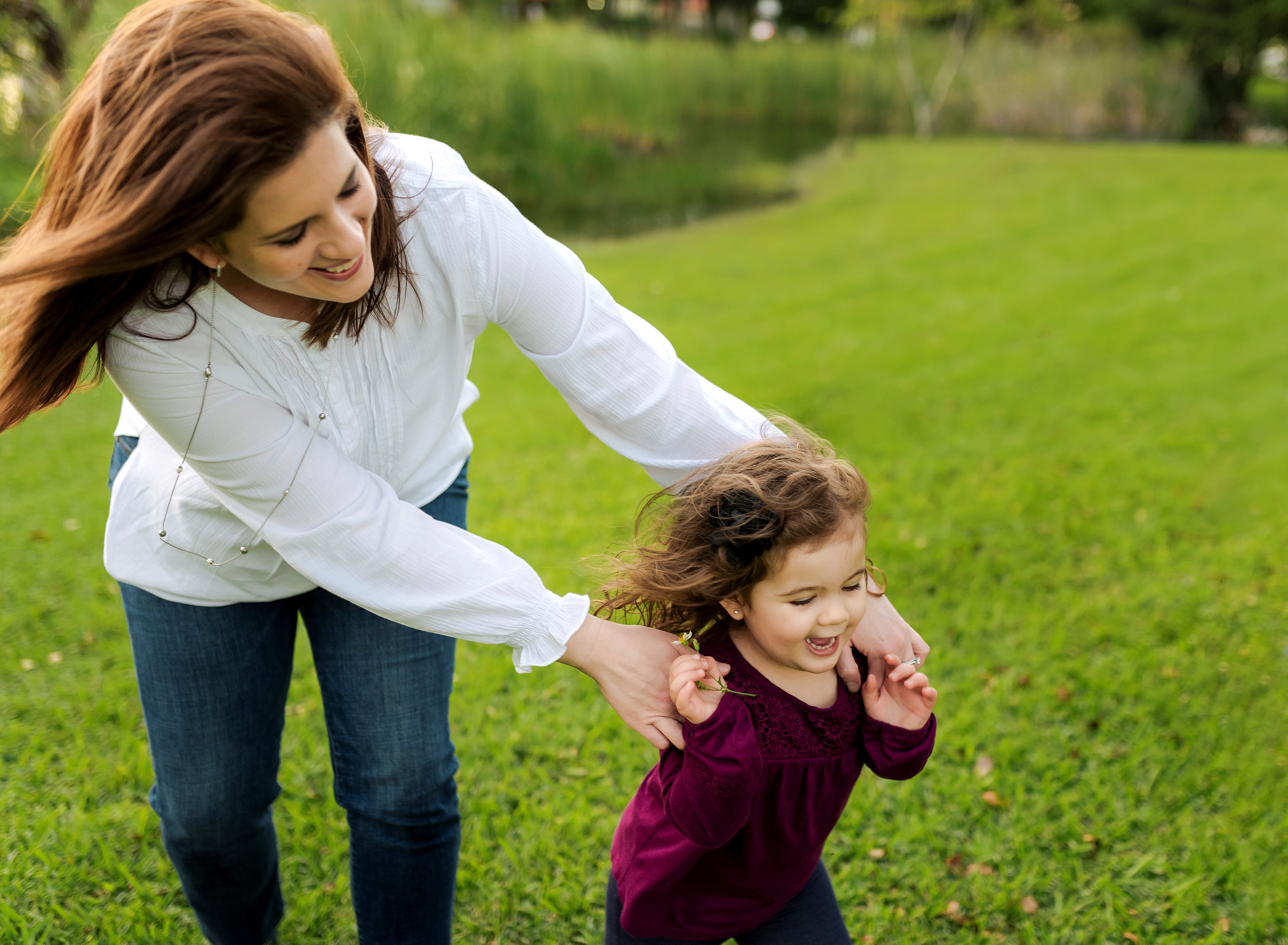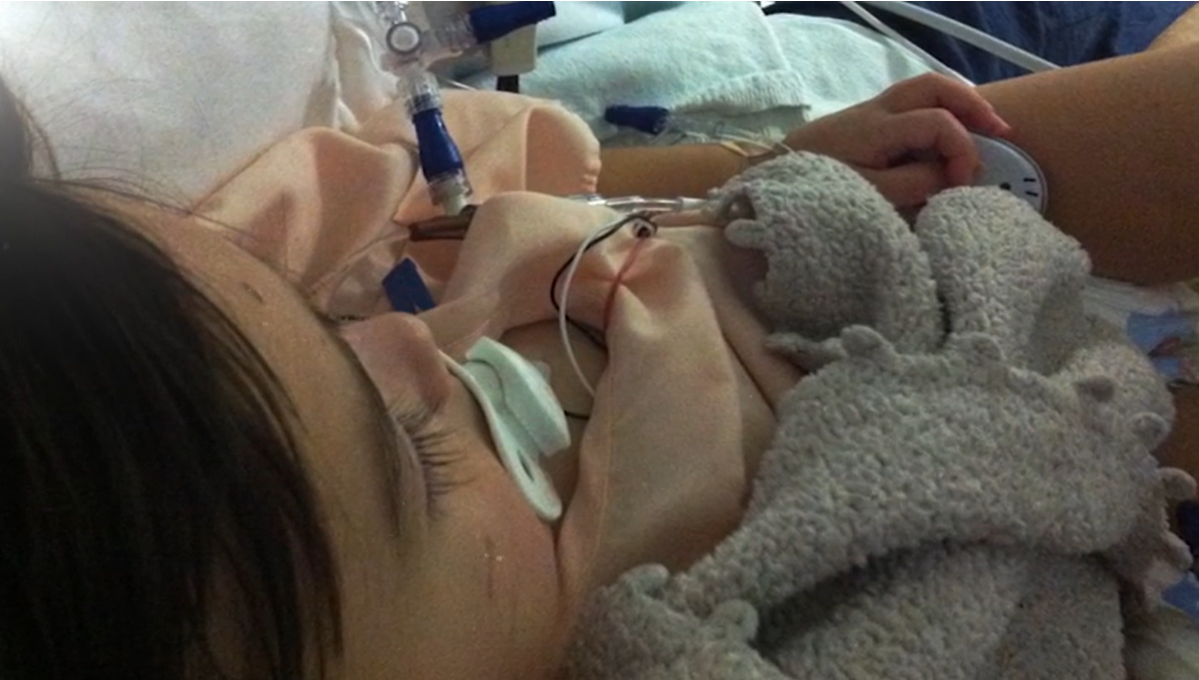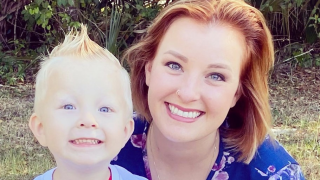
While breastfeeding, Olivia Frantz, then 27, noticed her breast had become red and inflamed and her skin looked different. At first, doctors thought she had mastitis, a swelling in the breast usually caused by an infection. When antibiotics did not work, she underwent tests and learned she had a rare, aggressive type of breast cancer, called inflammatory breast cancer.
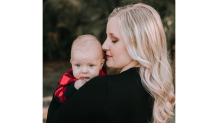
“It had spread to my bones in my hip, my femur, my sternum, my ribs and all up and down the vertebra in my spine,” the now 30-year-old from Florida tells TODAY.com. “Inflammatory breast cancer is almost always misdiagnosed.”
Breastfeeding helped her spot changes
Get South Florida local news, weather forecasts and entertainment stories to your inbox. Sign up for NBC South Florida newsletters.
On July 26, 2020, Franz gave birth to her son, Everett, seven weeks early, and he spent three weeks in the neonatal intensive care unit. After returning home, mom and baby bonded during breastfeeding, which increases the risk of mastitis. It wasn’t until October that Franz spotted anything amiss in her left breast.
“I noticed a (breast) lump,” she says. “It looked and felt like a silly putty shape and size, like that oval, and hard.”
She thought it was “funny” and decided to keep an eye on it. There was no family history of breast cancer, so she never considered it. She returned to work and was pumping more than breastfeeding and worried that pumping caused mastitis.
Health
But the lump did not go away. Franz scheduled an appointment with her doctor who gave her a prescription for an ultrasound, which she went to on Nov. 10, 2020.
“They said, ‘Nope, it’s mastitis. This looks great. Here’s some antibiotics,’” Franz recalls. “They even sent me a letter saying, 'You have no signs of cancer. Follow up in six months.'”
The antibiotics did not help, and her breast changed dramatically.
“My breast started becoming very red and inflamed. I got what I later learned is 'peau d’orange' that looks like orange peel,” she says. “I was like, ‘Something’s not right.’”
She underwent another ultrasound on Nov. 20, and the radiologist ordered a biopsy. She had a follow-up appointment for 10 days later, but doctors called her in sooner.
“They confirmed that it was at least stage 3 inflammatory breast cancer,” she says.
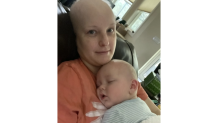
She soon learned she actually had stage 4 cancer, and it had spread extensively.
“I had no idea inflammatory breast cancer even existed,” she says. “I’m a stage 4 diagnosis. Am I going to see my son’s first birthday?”
Inflammatory breast cancer
“Inflammatory breast cancer is rare,” Dr. Rachel Layman, a doctor in the department of breast medical oncology in the division of cancer medicine at MD Anderson Cancer Center, tells TODAY.com. “Inflammatory breast cancer represents about 2% to 4% of all breast cancer diagnoses, and unfortunately it’s very aggressive.”
Even though it accounts for a smaller percentage of cases, it’s responsible for between 7% to 10% of all breast cancer deaths, Layman adds.
“It’s a huge problem,” she says.
One of the reasons it’s so deadly it that it presents differently than other breast cancers. It’s not typically found on a mammogram and doesn’t result in a lump in most cases.
“What patients often notice is that they have some change in the skin of their breast,” Layman says. “It can be red, and what we talk about is it’s often described as orange peel ... because the skin kind of looks like the skin of an orange where you see a lot of these dimples.”
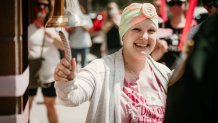
The breast often becomes swollen so much so that it increases in size. “The involved breast is a lot larger than the non-involved breast,” Layman explains.
Inflammatory breast cancer is aggressive. As many as half of cases are triple negative, or HER2 positive, which are more aggressive, Layman says.
“What we see is that this cancer can grow and change very, very fast, much faster than other non-inflammatory types of breast cancer,” Layman says. “We can sometimes notice a change from one week to the next, which we typically would not see with a non-inflammatory breast cancer.”
Like other breast cancers, doctors use a combination of therapies to treat inflammatory cancers. Typically treatment includes chemotherapy, surgery, then radiation. If the cancer has a hormone receptor, doctors might use a targeted treatment as well.
“You really can’t do surgery as the first step for inflammatory breast cancer,” Layman says. “It’s not even possible to do the surgery until they are given medications and shrink (the cancer) down before proceeding with surgery.”
Inflammatory breast cancer is diagnosed in late stages as it's nearly impossible to catch inflammatory breast cancer in stage 1 or 2, Layman says.
“Sometimes it gets mistaken for something else,” Layman says. “Sometimes it can be diagnosed as a mastitis or an infection of the breast, especially in patients who had a recent pregnancy.”
The prognosis is usually worse than in patients with non-inflammatory breast cancers, though there is hope.
“Many of our inflammatory breast cancer patients are cured,” Layman says. “It’s definitely not a death sentence.”
Yet, it has a higher recurrence rate.
“It’s a rare disease, and it requires diligence to make sure that the treatment is correct,” she says. “If anyone notices that they have a change in their breast even without a lump then that should really be evaluated by their doctor.”
Treatment and survivorship
Franz shared her story on Facebook, and a woman named Heather reached out to her and suggested Franz seek treatment from MD Anderson. That’s where Heather went for her own inflammatory breast cancer treatment, and she became somewhat of a mentor for Franz. Franz's treatment plan included chemotherapy at home, then surgery to remove her left breast and 37 lymph nodes.
“They left me completely flat on one side and there was no option for implants,” she says. “There’s typically not any option for reconstruction at all with inflammatory breast cancer because they have to do such a radical surgery taking so much skin.”
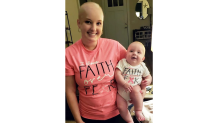
She moved to Houston for six weeks for radiation, which she had twice a day at MD Anderson. Her mom brought Everett so Franz wasn’t alone during the grueling treatment. She now undergoes an infusion every three weeks as maintenance to “keep the cancer away." Every six months, she returns to MD Anderson for a scan.
As a survivor, she’s faced some tough emotions.
“Survivorship is a whole new battle that you have to learn to figure out. Then I’ve got to figure out how to be a mom. How do I take care of myself now because I’ve had someone taking care of me and my baby this whole time?” she says. “Physically, I am cancer free, but mentally, it never leaves your mind.”
She’s never been a mother without having cancer. Sometimes she struggles, such as when she experiences extreme fatigue and can’t get off the couch to play with her son.
“I have a lot of physical limitations from my arm from having surgery and radiation. I have a lot of tightness. I can’t always pick him up and throw him around and have fun with him like I want to,” she says. “If I get a bone pain, (I think), ‘Oh my gosh is it back in my bones?’ The thought is never not there: ‘Is the cancer back? Is it going to come back?’”
Despite the challenges she faces, Franz appreciates the time she has with her family, and when she feels good, she enjoys spending time with them at Disney World or Universal Studios, which is close to where Franz lives.
“We have planned a lot of trips and done a lot of stuff since finishing treatment that I maybe wouldn’t have before,” she says. “Your time is going quicker than you think, so plan the vacation. Do the thing. Spend time with the people who matter.”
This story first appeared on TODAY.com. More from TODAY:

